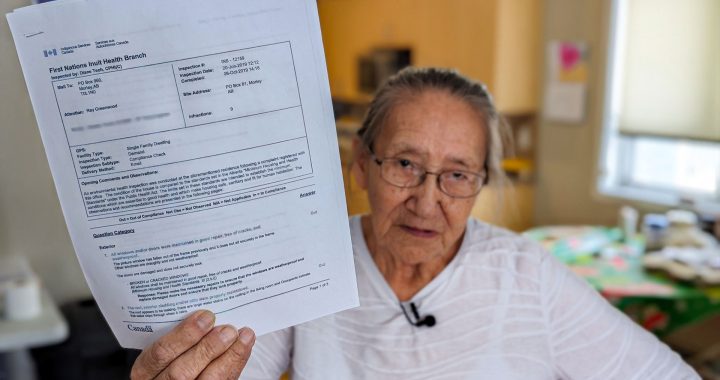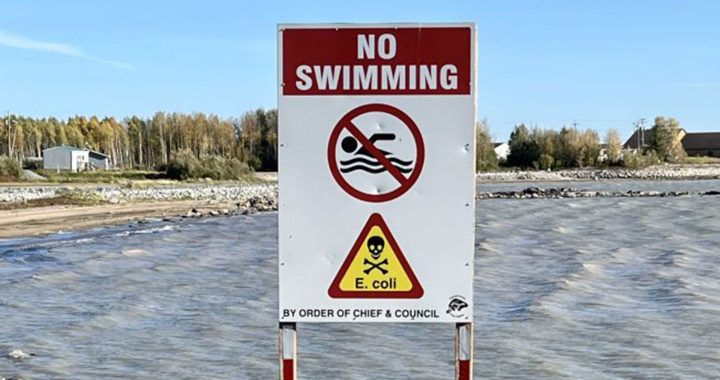Paul Barnsley
APTN Investigates
VANCOUVER — A Federal Court judge has ordered Correctional Services of Canada (CSC) to stop using its standard psychological risk assessment on violent Aboriginal offenders.
According to a ruling written by Justice Michael L. Phelan on Sept. 18, Canada is lagging behind other countries in its efforts to eliminate bias.
Phelan ordered CSC to stop using its standard psychological risk assessment tests on Jeffrey G. Ewart and to return to court in 30 days to tell the court how it plans to conduct research “to assess the reliability of these psychological tests in respect to adult Aboriginal offenders.”
“This is not an issue that CSC missed inadvertently. It’s been a live issue since 2000, has been on CSC’s ‘radar screen’ and the subject of past court decisions where the court contemplated that some type of confirmatory research was being conducted,” the judge wrote. “It is time for the matter to be resolved.”
Ewart, 53, self-identifies as Metis and is recognized by CSC as an Aboriginal offender. He was adopted by a non-Aboriginal family at the age of six months. The judge wrote that his adopted family life was “tragic” with an alcoholic father, a mentally ill mother and racist, abusive siblings.
He has spent 30 years in federal institutions, almost half of that time in maximum security facilities and is now serving two life sentences: for second degree murder and attempted murder.
Ewart originally sued CSC for damages in 2006 and 2007, claiming that the tests used by CSC on prisoners were biased against Aboriginal people, which prevented him moving forward with his rehabilitation.
But he represented himself and was not successful at trial.
He’s been eligible for full parole since 1999. But he has refused to apply for parole, claiming the bias in the tests would find him too likely to re-offend and he would be turned down.
After failing in his first legal challenge, he retained Vancouver lawyer Jason Gratl to help get his complaints back in front of a judge. Gratl said CSC lawyers in Ewart`s previous legal action told the court their client would get to work on addressing the cultural bias in the tests.
Justice Phelan was clearly not pleased with the progress made by CSC since 2007. He noted Section 4 of the Corrections and Conditional Release Act, which governs the CSC, specifically requires that “correctional policies, programs and practices respect gender, ethnic, cultural and linguistic differences and are responsive to the special needs of women, Aboriginal peoples, persons requiring mental health care and other groups.”
He then ruled the CSC was not complying with its governing legislation.
He also noted that several other countries have started to address the systemic discrimination against Indigenous people and it was time for Canada to get up to speed.
“Other countries, including the UK, the USA and Australia, have all conducted research to ensure that their psychological assessment tools are reliable in respect to cultural minorities,” he wrote.
The five tests that have been impugned are: Hare Psychopathy Checklist Revised [PCL-R], Violence Risk Appraisal Guide [V-RAG], Sex Offender Risk Appraisal Guide [SORAG], Static 99, Violence Risk Scale – Sex Offender [VRS-SO].
The judge found the expert testimony of Dr. Stephen Hart, a professor of psychology at Simon Fraser University who was called to testify on behalf of Ewart, to be persuasive.
Dr. Hart testified the tests were developed, in some cases decades ago, without considering Aboriginal cultures or perspectives. He also said there are ways psychiatrists can analyze the tests to rule out cross-cultural bias but CSC has not done that work.
“Because of the significant cultural differences between Aboriginal and non-Aboriginal Canadians, the actuarial tests at issue in this action are more likely than not to be ‘cross-culturally variant,’” the judge wrote, summarizing Hart’s evidence.
Lawyer Jason Gratl was asked if this decision would have an effect in provincial jails as well as federal institutions.
“Oh yes,” he replied. “Not only the provincial prison system but also every aspect of the criminal justice system that relies on these types of standardized tests. For example, dangerous offender hearings typically rely on the PCL-R to assess whether an offender is so dangerous to the community that they ought not be released for an indefinite period of time.
The decision has given Gratl’s client hope that he might one day leave prison.
“Before, he had no hope in hell of getting out and now he’s got a chance. If he crosses his T`s and dots his I`s and stays on a narrow road, he`s got a decent chance of being released into day parole in two or three, maybe four years, whereas before the prison gates were closed to him permanently,” he said. “He would have died in jail.”
It will be easier now for Aboriginal prisoners who have committed violent acts to move from maximum to medium or even minimum security if they do the work, the lawyer said.
“Particularly for persons who are convicted of violent crimes, it’s standard fare for the authorities to administer risk appraisal tests upon entry into the prison system. So almost every Aboriginal prisoner who has committed an offense involving violence is administered the PCL-R and the V-RAG and many of the prisoners are administered some of the other tests,” he said. “It’s super, super difficult to work out of a negative PCL-R result or a V-RAG result, until now. Because it’s supposed to be statistical, it’s supposed to be scientific, it’s supposed to be objective. It’s not just one psychologist’s opinion about whether a person is dangerous, it’s the opinion of science itself. And it’s very difficult to go against that.”
Other lawyers across the country have already taken note of this decision, he said.
“I’m seeing it’s already being raised. I’ve received emails from a couple of lawyers who are representing persons against whom DO [Dangerous Offender] proceedings are being brought where PCL-R plays a prominent role,” the lawyer said. “These things seem to track people’s lives. It has effect in the parole context, in dangerous offender applications and it may have other types of repercussions too.”
CSC declined to comment on the decision.
“The Correctional Service of Canada (CSC) is currently reviewing the Federal Court’s interim order and reasons for judgment. As this matter remains before the courts, it would be inappropriate for CSC to offer comment at this time,” CSC spokesperson Lori Halfper said in an emailed statement received Oct. 1.










